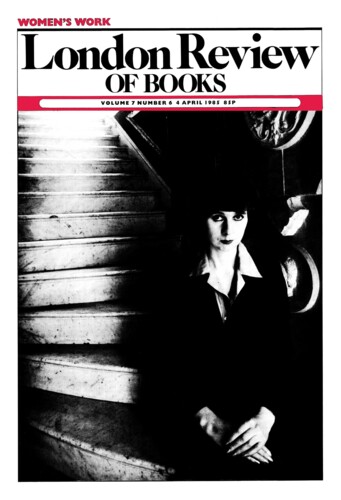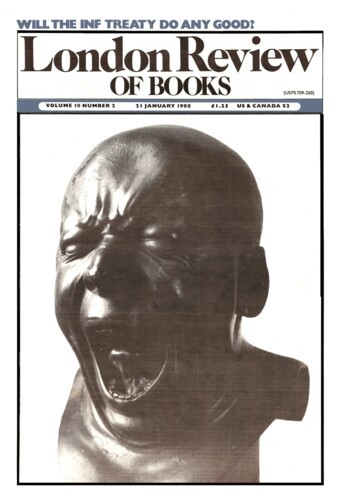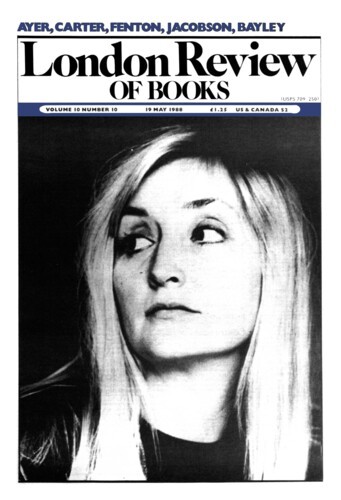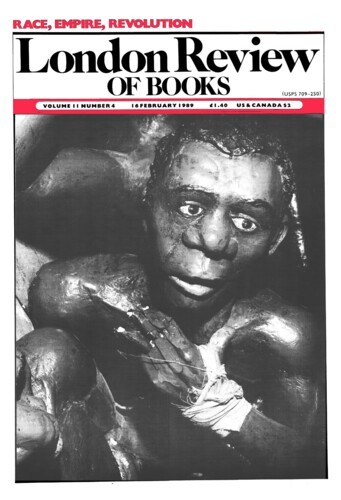Academic Self-Interest
Sheldon Rothblatt, 19 January 1984
In the Edwardian age the clerical collar was still worn in the Turl but that was merely a survival. The don was, to adapt an American movie conceit, a ‘watermelon man’, one colour outside and quite another inside. A century’s worth of secularisation had captured Oxford. No longer was Church preferment the first object of a don and so no longer was Oxford merely a caravan stop on the way to another career: university teaching had become an end in itself.





